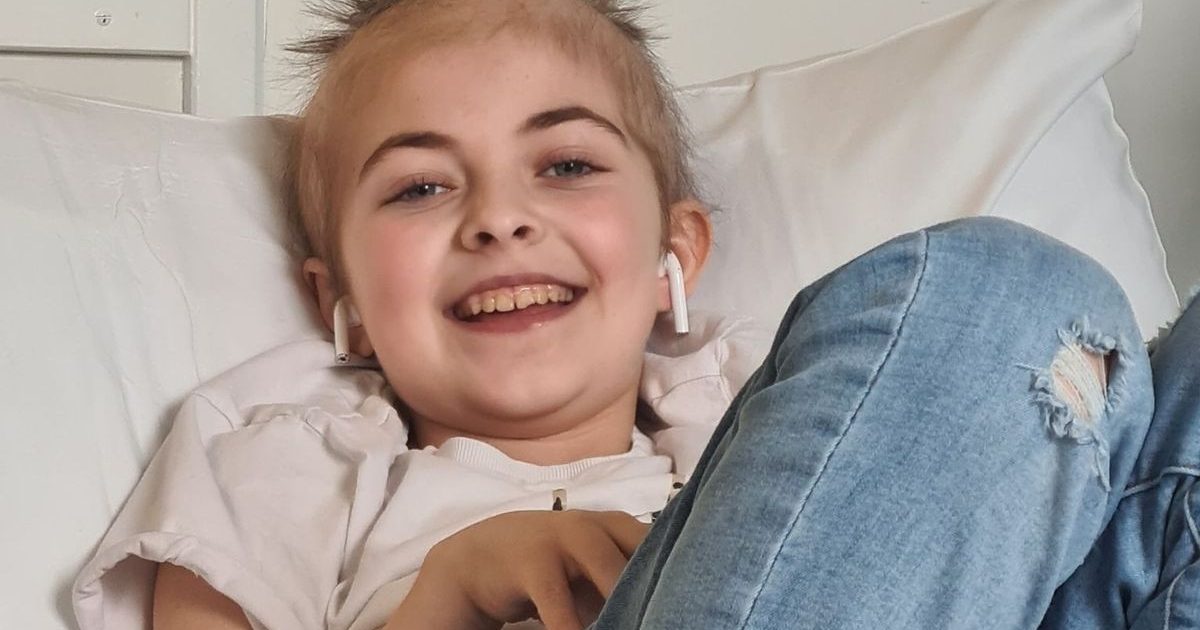Stomach Pains Turn Out to Be Ovarian Cancer
- Sinead Zalick, a 12, was taken to the hospital for an upset stomach. Her stomach pain turned out to stem from a rare early case of ovarian cancer.
- After finishing her chemotherapy treatment, Zalick started going back to school, where she was bullied because she lost her hair during treatment.
- Childhood ovarian cancer is rare, and most ovarian masses discovered in children are not malignant. Though still rare, malignant ovarian tumors are most common in girls between the ages of 15 and 19.
As Zalick's symptoms intensified and she began to experience bloating in December 2020, she was rushed to the hospital.
Read MoreZalick had been thrilled to return to school, and her parents realized that something was wrong when she started avoiding her classmates and making excuses to stay home. Zalick's mother went to the school to confront her teachers about the bullying that had made her child afraid of school, but when she returned home, she found Zalick ready for the school day. She was dressed in her uniform without her wig.
"When she put her uniform on I felt like the proudest mum in the world, but scared as we as parents know that bullying goes on," Zalick's mother told PlymouthLive.
The brave girl still has four masses of cancer in her uterus that cannot be removed. Her doctors believe that the lumps are dead, but Zalick and her family will not know for certain until she receives her scan in November. Zalick is also waiting to meet with a kidney specialist.
Ovarian cancer survivor Stephanie Virgin shares her story about advocating for your own health.
Recognizing Symptoms and Advocating for Yourself
There are countless stories of cancer patients who either ignore their own symptoms, or are told by others that they are exaggerating their symptoms. That’s why it is important for people to trust what their bodies tell them, and to be persistent when they think that something is wrong.
Leukemia survivor Lily Whitmarsh recognized the severity of her symptoms months before she was diagnosed. The 20-year-old British woman complained of night sweats, fatigue, and cramps, but was dismissed as a hypochondriac.
"I remember that one day at work, my legs ached so much, I couldn't sit still and was on the brink of tears at the time my colleagues just thought I was being a drama queen!" she told Daily Mail. "Looking back, I have every symptom in the book, but I thought I was overreacting too."
A lot of men tend to ignore symptoms. Marc Futterweit, a two-time male breast cancer survivor, knows this first-hand.
Stories like these highlight how important it is to take your health and any persistent discomfort you experience seriously. Men seem to have a habit of brushing off symptoms that might help them detect cancer in its most curable stages, and women’s concerns are often invalidated by peers, and sometimes even healthcare providers.
You know your body better than anybody, and when you have the sense that something is wrong, it is important to persevere and seek second opinions.
"If I had any advice for you following a cancer diagnosis, it would be, first to seek out multiple opinions as to the best care," National Cancer Institute chief of surgery, Dr. Steven Rosenberg previously told SurvivorNet. "Finding a doctor who is up on the latest information is important, and it's always important to get other opinions so that you can make the best decisions for yourself in consultation with your care providers."
Learn more about SurvivorNet's rigorous medical review process.


